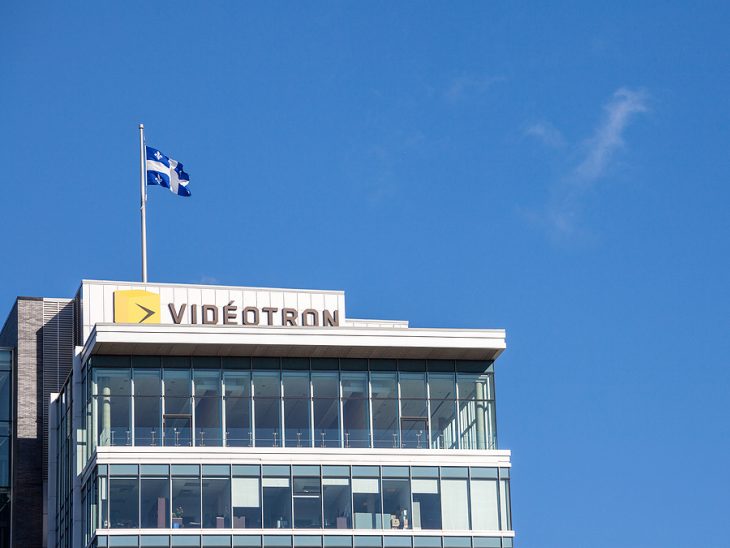
By Ahmad Hathout
MONTREAL – Quebecor’s telecom arm Vidéotron is suing a trio of companies for allegedly conspiring to redistribute, without authorization, its TVA television signals in Quebec hotels, new court documents claim.
Videotron has filed new court documents in federal court in Montreal last week alleging the three companies have concocted a scheme whereby one company would purchase television service from Videotron with the intention of routing it to hotel customers of another company to maximize revenue from the single subscription, infringing on its copyright and bypassing its protections.
The regional telecom claims that Libeo Inc. develops and distributes Konek Technologies Inc. services. Hill Valley, the third member of the group, is alleged to be the content provider. The boxes, the complaint alleges, distributes unlicensed content through the internet.
Videotron says it had its technical protections – which prevent those who are not subscribed from seeing its content – circumvented when Libeo purchased TVA services only to redirect the signal to Konek boxes, whose customers are hotels.
Videotron claims Libeo and Hill Valley were created for the sole purpose of being front companies to add legitimacy to the operation. The parties, Videotron says in its court filing, tried to claim they are entirely separate entities, but Videotron said they are all affiliated by address and owners.
It alleges the defendants told customers it is authorized to sell Videotron’s services, thus diminishing its business prospects and reputation.
Videotron said it has contacted the defendants about their allegedly illegal activities, but they have persisted.
The company declined to comment because the case is still before the court.
Videotron said it is hard to tell the extent of the damages caused by the defendants, but said in the documents that all things considered, this scheme violated its copyright and said it has suffered damages of more than $5 million.
This suit is the latest in a years-long effort by the big telecoms with television businesses to stem the rise of illegal redistribution of unlicensed content by third-party IPTV service providers which aggregate the content and sell them for a fraction of what it would cost to purchase each individual channel or package.
The highest-profile case in front of the Federal Court of Appeal right now is one involving GoldTV, which was ordered by the Federal Court to stop selling its cable packages that aggregate unlicensed content. What’s at issue in the appeal court is whether the lower court made a mistake in requiring internet service providers to block access to GoldTV’s websites to stop it from doing business because the defendant hasn’t stopped distribution.
A hearing is scheduled for March 24 in that case.
Piracy and copyright infringement have been the subject of large public campaigns by the large telecoms. Rogers and Bell, the largest vertically-integrated companies that own both content and networks to deliver it were two members of the Fairplay Canada coalition that fought to have the government implement new measures protecting against piracy.
They had also been on a legal crusade against pre-loaded set-top boxes, such as Kodi media players, that contained unlicensed content. In 2018, Rogers, Bell and Quebecor went after the owner of TVAddons, a plugin to media players that allowed users to retrieve unlicensed content from the internet.


